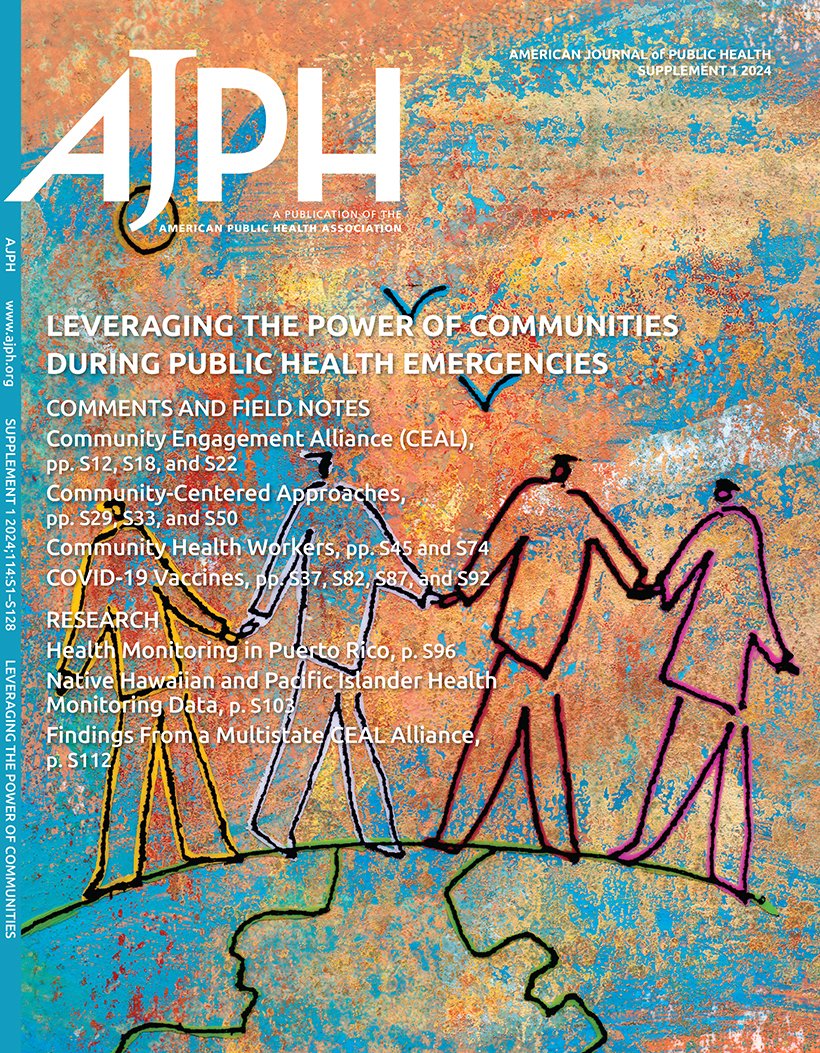COVID-19大流行期间性和性别少数群体中医疗保健刻板印象的威胁
IF 9.6
1区 医学
Q1 PUBLIC, ENVIRONMENTAL & OCCUPATIONAL HEALTH
引用次数: 0
摘要
目的确定性少数群体或性别少数群体在 COVID-19 大流行期间所经历的医疗保健刻板印象威胁的程度和差异。方法。全国夫妇健康和时间使用研究是一项基于美国人口的全国性横断面样本,在 2020 年 9 月至 2021 年 4 月大流行期间对有伴侣的个人进行了访谈,其中包括性少数群体和性别少数群体的超量样本。分析样本包括 3614 人(n = 2043 名异性恋者和 n = 1571 名性少数群体者,以及 3489 名顺式性别者和 125 名非顺式性别者)。研究结果与异性恋者相比,具有性少数群体身份的人在医疗保健方面受到的刻板印象威胁明显更多。顺性别女性和具有另一种性别认同的人在医疗保健方面受到的刻板印象威胁明显高于顺性别男性。在纳入健康状况、保险、COVID-19 经验和社会人口因素等指标后,这些结果依然存在。结论。性别和性取向少数认同者对健康歧视的担忧程度很高。我们的工作表明,提供积极的医疗保健体验可以减少这些担忧,并为解决由结构性歧视和人际歧视造成的性少数群体和性别少数群体的健康差异提供潜在的解药。这些研究结果支持了对医疗保健服务和系统进行进一步教育和改革的呼吁。(Am J Public Health.https://doi.org/10.2105/AJPH.2024.307926).本文章由计算机程序翻译,如有差异,请以英文原文为准。
Health Care Stereotype Threat During the COVID-19 Pandemic Among Sexual and Gender Minority Individuals.
Objectives. To determine the levels and differentials in health care stereotype threat experienced during the COVID-19 pandemic by individuals with sexual or gender minority identities. Methods. The National Couples' Health and Time Use Study is a national cross-sectional US population‒ based sample of partnered individuals interviewed during the pandemic between September 2020 and April 2021 with oversamples of sexual and gender minority individuals. The analytic sample consisted of 3614 individuals (n = 2043 heterosexual and n = 1571 sexual minority individuals along with 3489 cisgender and 125 noncisgender people). Results. Individuals with sexual minority identities experienced significantly more health care stereotype threat than heterosexual people. Cisgender women and those with another gender identity experienced significantly more health care stereotype threat than cisgender men. These results persisted after the inclusion of indicators of health conditions, insurance, COVID-19 experience, and sociodemographic factors. Conclusions. Gender and sexual minority‒identifying people reported high levels of worries about health discrimination. Our work suggests that providing positive health care experiences may reduce these worries and offer a potential antidote to sexual and gender minority health disparities that are driven by structural and interpersonal discrimination. These findings support calls for the further education and transformation of health care provision and systems. (Am J Public Health. Published online ahead of print January 16, 2025:e1-e9. https://doi.org/10.2105/AJPH.2024.307926).
求助全文
通过发布文献求助,成功后即可免费获取论文全文。
去求助
来源期刊

American journal of public health
医学-公共卫生、环境卫生与职业卫生
CiteScore
9.50
自引率
3.90%
发文量
1109
审稿时长
2-4 weeks
期刊介绍:
The American Journal of Public Health (AJPH) is dedicated to publishing original work in research, research methods, and program evaluation within the field of public health. The journal's mission is to advance public health research, policy, practice, and education.
 求助内容:
求助内容: 应助结果提醒方式:
应助结果提醒方式:


